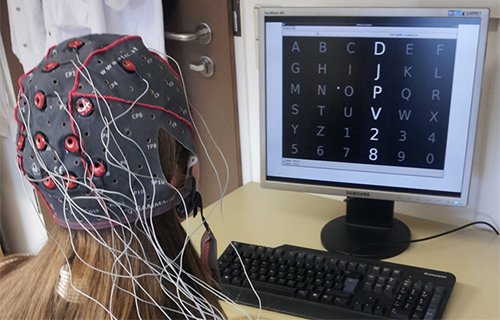Apart from motor dysfunctions, up to 50% of ALS-patients may show characteristic changes in either cognition and/or behavior. About 5-10% of patients present signs of full-blown dementia, especially behavioral variant of frontotemporal dementia. Cognitive dysfunctions may encompass language understanding (naming), language fluency (verbal fluency) and other executive functions (e.g. theory of mind). Up to now, no ALS specific tool was available. Now, ECAS offers a fast and easy to use screening-method which can be utilized both in- and outpatient clinics. ECAS identifies cognitive and behavioural deficits, determines the degree of impairments in ALS patients and additionally enables clinicians and neuropsychologists to differentiate ALS-specific mental impairments from other diseases.
Since the ECAS can be performed orally and in written form, it can be used independently of motor disorders such as Dysarthria, at least up to a certain degree of physical impairments. In far advanced stages of the disease an adapted versions of ECAS may be used.
According to different studies, approximately 22% of ALS patients show reduced scores for the ECAS-total, 15% for the ALS-nonspecific and 21% for the ALS-specific domain. Significant differences are mostly present in the sub domains language, fluency and executive functions in ALS patients compared to healthy controls (Lulé et al., 2014).
The ECAS has already been used in large samples (N>450 ALS patients in Ulm).
Due to the high level of applicability and strong validity according to ALS-specific impairments and the differentiation to other pathologies, the utilization of ECAS becomes more and more common in daily clinical practice and in studies.

